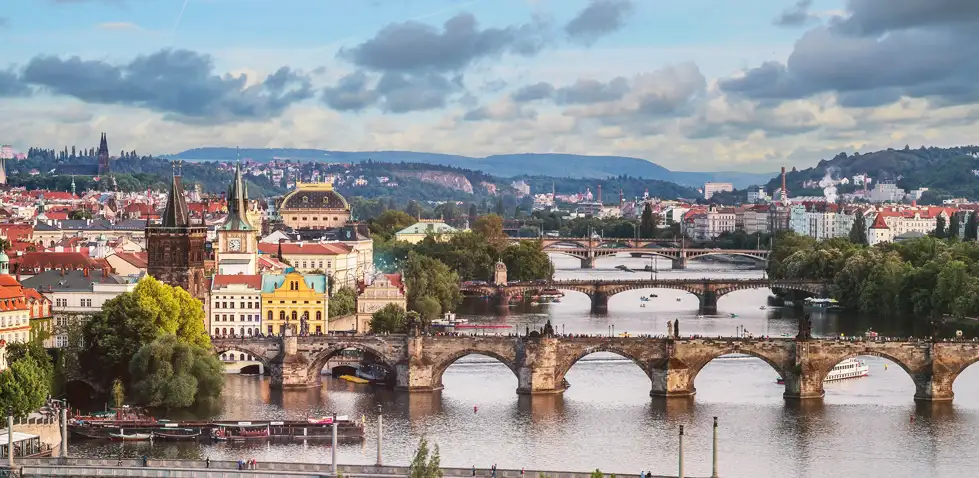

Located in Central Europe, the Czech Republic is known for its blend of traditional, gothic and modern architecture. It is also home to 12 of the UNESCO World Heritage Sites. The Czech Republic covers an area of 78,866 square kilometres and is home to 10.7 million people. The country has a fascinating history, and it was the only place in Central Europe to remain a democracy between World War I and World War II. In 1993, Czechoslovakia peacefully dissolved and created 2 countries, one of which we now know as the Czech Republic.
The Czech Republic is a well developed country, with a rich economy founded on an export-oriented social market. It is also a member of the EU, and bordered by 4 well known European countries. This makes it a perfect location for international students to gain their education, with access to industry based job opportunities.
Whilst the official language is Czech, thousands of courses are taught in English throughout higher education institutions. There is a mixture of public and private universities, as well as 2 state institutions. Across these institutions, there are more than 43,000 international students.
The Czech Republic has a high quality education system, specialising in Sciences, Engineering and Medicine. It is home to the oldest university in Central Europe, The Charles University in Prague, founded in 1348. Ranked in the top 20 countries in the world for its education system, the Czech Republic is the ideal destination for international students wanting to study abroad!
There are several cities across the Czech Republic that are welcoming for international students. These include Prague and Brno, as well as others.
International students will need to obtain a student visa to study in the Czech Republic. For more information about this, see our Czech Republic Student Visa Guide.
| Continent | Europe |
|---|---|
| Language(s) of tuition | Czech |
| Universities on StudyLink | 10 universities |
| Major Student Cities | Brno, Ostrava |
Prague University of Economics and Business Czech Republic (the)
Find out morePreparatory Course for University Study - Humanities Advanced Certificate
Institute for Language and Preparatory Studies, Charles University Czech Republic (the)
Find out moreDigital Marketing and Analytics MSc
University of New York in Prague Czech Republic (the)
Find out moreBachelor of Science degree in Electrical Engineering BSc
Czech Technical University (CTU) in Prague Czech Republic (the)
Find out moreInternational Relations: European Studies BA
Anglo American University (AAU) Czech Republic (the)
Find out moreJoin the StudyLink email list and never miss a chance to turn your study abroad dreams into reality!
